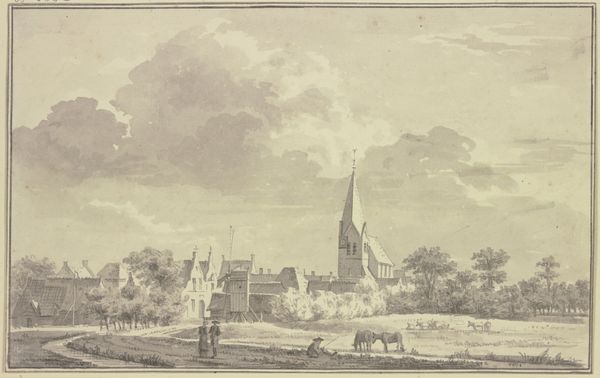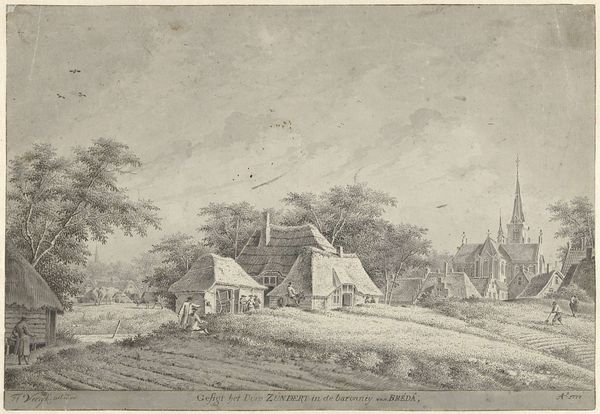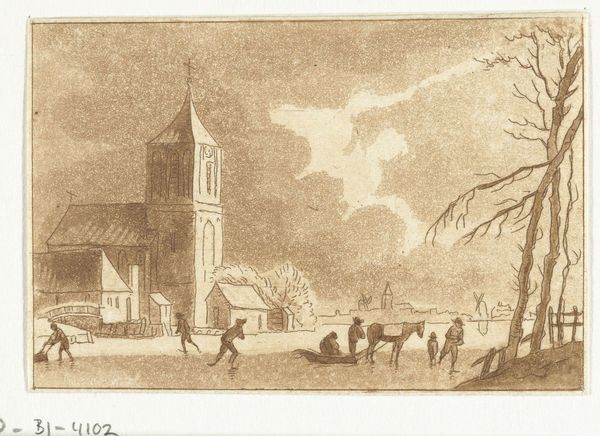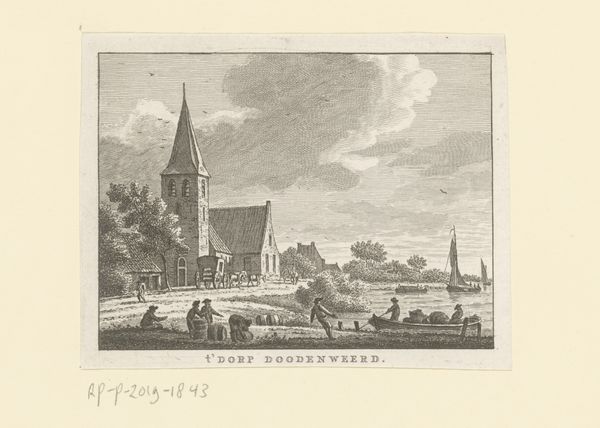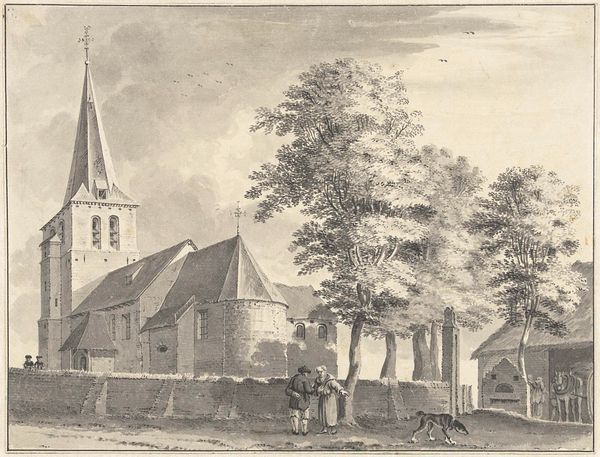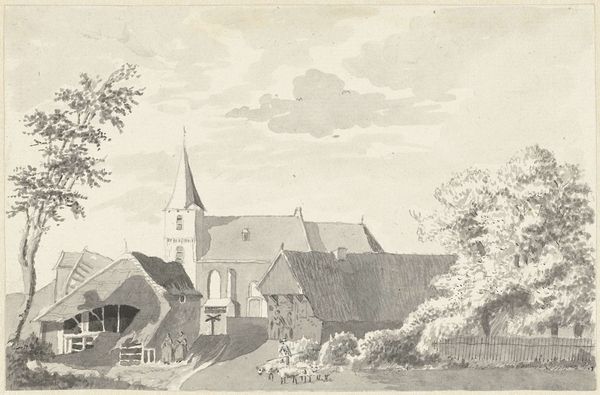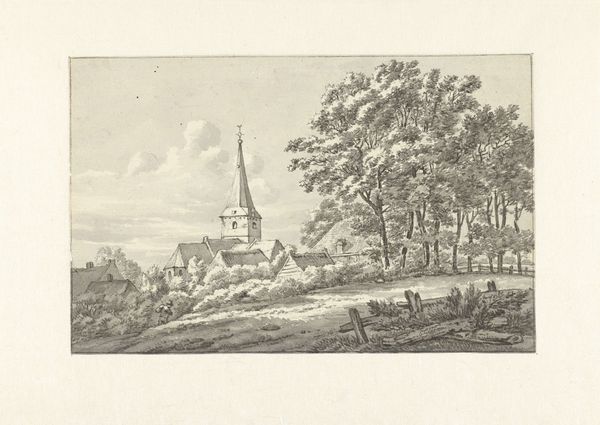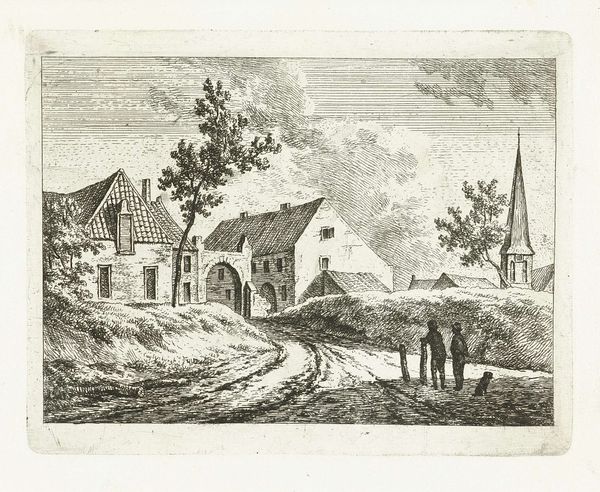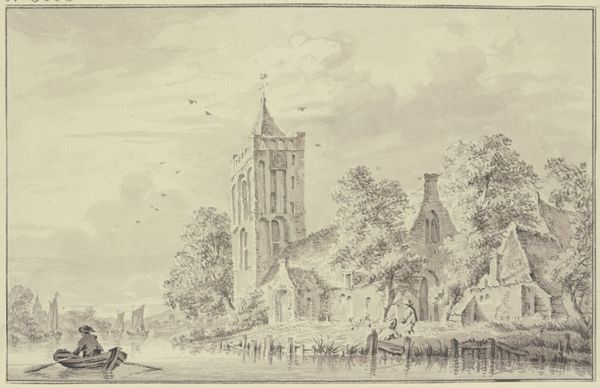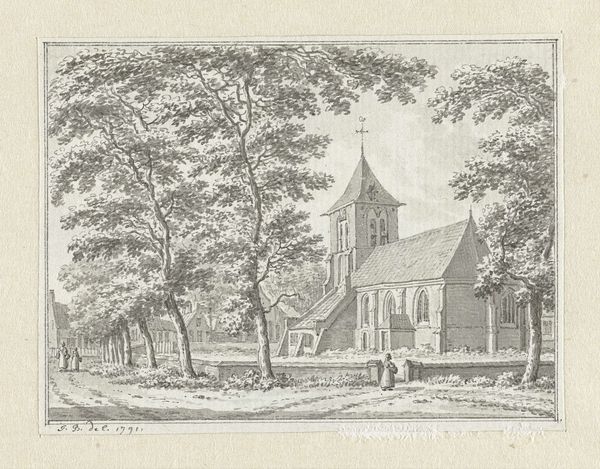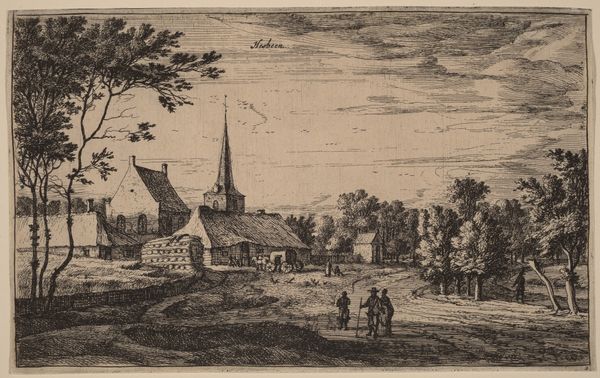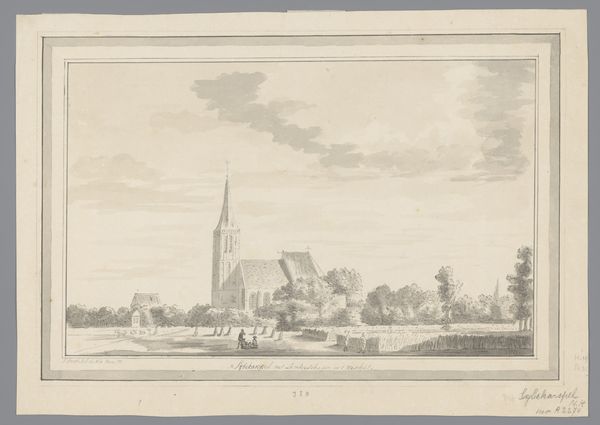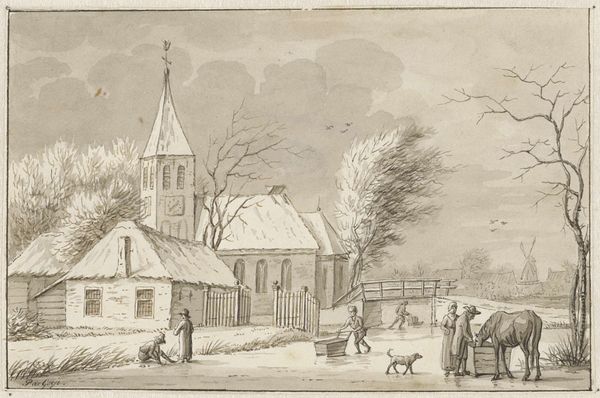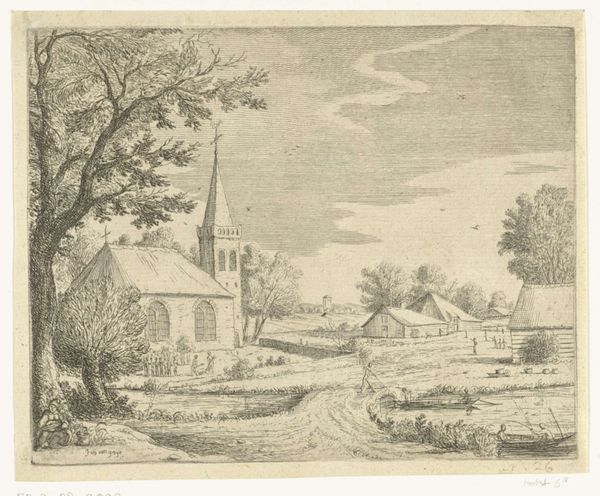
drawing, paper, pencil
#
drawing
#
dutch-golden-age
#
landscape
#
paper
#
pencil
#
realism
Dimensions: height 442 mm, width 566 mm
Copyright: Rijks Museum: Open Domain
Editor: Here we have Cornelis van Cuylenburgh’s "The Wheel Behind the Church of Raamsdonk", made with pencil on paper in 1792. It has such a peaceful atmosphere, doesn't it? Sort of a nostalgic pastoral scene. What grabs your attention when you look at it? Curator: Oh, the nostalgia is palpable, isn’t it? For me, it's the way the church steeple almost seems to whisper stories to the passing clouds. Notice how Cuylenburgh uses light and shadow to give the scene a gentle depth. The stillness of the water, the grazing cows… It’s almost as if time is holding its breath, do you feel that? Editor: Definitely. The muted tones contribute to that feeling, like an old photograph. Were scenes like this common subjects for artists at the time? Curator: Absolutely. The Dutch Golden Age painters had a real love affair with the everyday, didn't they? Cuylenburgh captures not just a place but a feeling, an essence of rural life. It's interesting, this "ordinariness," is so captivating precisely because it allows us to imagine ourselves *there*. Do you ever find yourself stepping into the scene, imagining the sounds, the smells? Editor: All the time! I imagine it smelling like grass, mud, maybe a little bit of smoke. That makes a lot of sense! So, it's about the relatable, quiet moments. It’s less about grand historical narratives and more about simple existence, almost like a visual poem. Curator: Exactly! And the fact that he chose a humble pencil, a simple material, feels very in tune with that theme, right? Like a quiet meditation. It's a beautiful reminder that profound beauty can be found in the most unassuming corners of our world. Editor: I agree; thanks for your insight. Curator: My pleasure. Until next time.
Comments
No comments
Be the first to comment and join the conversation on the ultimate creative platform.
